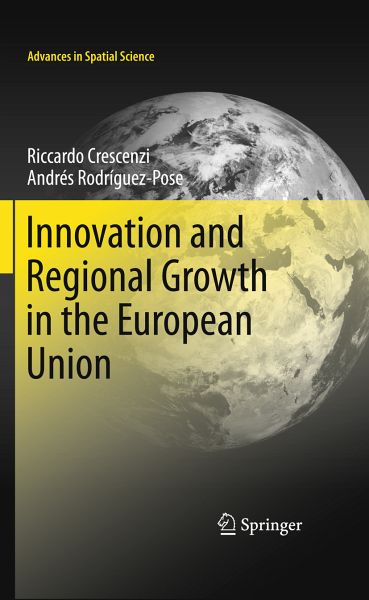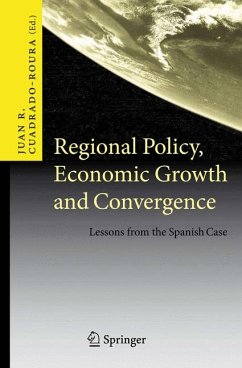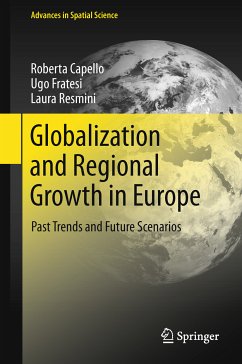
Innovation and Regional Growth in the European Union (eBook, PDF)
Versandkostenfrei!
Sofort per Download lieferbar
72,95 €
inkl. MwSt.
Weitere Ausgaben:

PAYBACK Punkte
36 °P sammeln!
This book investigates the EU's regional growth dynamics and, in particular, the reasons why peripheral and socio-economically disadvantaged areas have persistently failed to catch up with the rest of the Union. It shows that the capability of the knowledge-based growth model to deliver its expected benefits to these areas crucially depends on tackling a specific set of socio-institutional factors which prevents innovation from being effectively translated into economic growth. The book takes an eclectic approach to the territorial genesis of innovation and regional growth by combining differe...
This book investigates the EU's regional growth dynamics and, in particular, the reasons why peripheral and socio-economically disadvantaged areas have persistently failed to catch up with the rest of the Union. It shows that the capability of the knowledge-based growth model to deliver its expected benefits to these areas crucially depends on tackling a specific set of socio-institutional factors which prevents innovation from being effectively translated into economic growth. The book takes an eclectic approach to the territorial genesis of innovation and regional growth by combining different theoretical strands into one model of empirical analysis covering the whole EU-25. An in-depth comparative analysis with the United States is also included, providing significant insights into the distinctive features of the European process of innovation and its territorial determinants. The evidence produced in the book is extensively applied to the analysis of EU development policies.
Dieser Download kann aus rechtlichen Gründen nur mit Rechnungsadresse in A, B, BG, CY, CZ, D, DK, EW, E, FIN, F, GR, HR, H, IRL, I, LT, L, LR, M, NL, PL, P, R, S, SLO, SK ausgeliefert werden.












